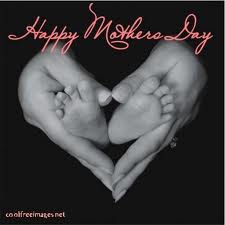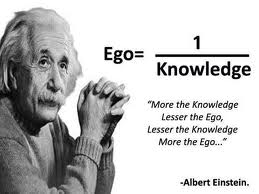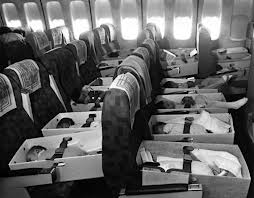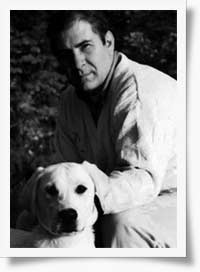 Viktor Frankl is the only man I know who voluntarily entered the concentration camps.
Viktor Frankl is the only man I know who voluntarily entered the concentration camps.
I met Viktor in April of l985. He became a friend and mentor who had a profound influence on my life. Once in a quiet moment, he told me how he found his path, how he came to be in the concentration camps, and the value of that “abyss experience.”
“When the Nazis came to power,” he said, “I was the head of the neurological department of a Jewish hospital in Vienna. Anti-Semitism was increasing daily, and my family and I could see what was coming. Like many people, we began preparing to get out. I applied for a visa to come to America where I could continue my work.
“At the eleventh hour, as the Nazis were closing in, the U.S. Consulate informed me a visa had been granted for me to emigrate to the United States. This was the moment I had anticipated for several years and I rushed down to the consulate with great excitement. My enthusiasm fled when I realized the visa was only valid for one. I was confronted by the fact that if I escaped to America, I would have to leave my parents behind.”
In despair Viktor left the embassy and walked in a daze to a park nearby. Covering the yellow Star of David he was compelled to wear on his chest so the Nazis would leave him alone, he sat on the park bench in agony. What should he do?
“On one hand,” he said, “was safety, the opportunity to work, and nurture my ‘brain child’ — logotherapy. On the other hand, there was the responsibility to take care of my parents by staying with them in Vienna and, rather than leaving them to their fate, share it with them.”
Viktor could not find an answer. What would his parents do if he left? What could he do if he stayed? Would it make any difference to them or would all be lost?
“At best, if I stayed with my family, I would have the opportunity to be with them and protect them from being deported but who knew for how long before the Gestapo came for us all?” Viktor said. “If I stayed, my work and theories would perish with me.”
Viktor sat there and meditated for more than an hour. Finally, he realized he could not resolve the matter and got up to go home. He remembers thinking somewhat sarcastically as he left that if there ever was a time that a man could use a sign from God, this would be it. The issue was beyond human resolution.
Almost immediately upon entering his apartment, Frankl noticed a stone, a piece of marble on the radio. He called his father and asked him, “What is this and why is it here?
“Oh, Viktor,” his father said with some excitement. “I forgot to tell you. I picked it up this morning on the site where the largest synagogue in Vienna stood before the Nazis burned it down.”
“And why did you bring it home?” Viktor asked.
“Because I noticed that it is part of the two tablets whereon the Ten Commandments are engraved – you remember, above the altar?” his father said. “In fact, you can see, on the piece of marble, one single Hebrew letter engraved and gilded. Even more, I can tell to which of the Ten Commandments this letter refers because it serves as the abbreviation for only one.”
“I looked at it and had my answer,” Viktor said. “It was the commandment that says, ‘Honor thy father and thy mother.’ At that moment, my decision was clear. I gave up my visa and stayed in Austria. A few months later, the Gestapo closed the hospital. My whole family was arrested and taken to the concentration camps. My mother died in the gas chamber of Auschwitz. My brother died in a coal mine near Auschwitz. My father suffered first from starvation and finally succumbed to pneumonia.”
The only satisfaction in this was that Viktor was able to visit his father in his barracks and be with him in his final hours. As a physician, he could not help but notice the terminal lung edema setting in. He saw his father in pain. He heard his struggle for breath and knew when it was time to use the single ampoule of morphine he had smuggled into camp.
Viktor waited and watched until the morphine worked. When it brought relief he asked his father if there was anything more he could do for him. They talked for a moment more, and then his father fell peacefully into the sleep Viktor knew would be followed by death.
As he left for his own barracks, Viktor said he knew he would never see his father again, but rather than sadness, he found himself experiencing happiness to a degree he had never known before. There in the concentration camps, the most miserable of experiences, he found his greatest joy. He had honored his father. He had been there for him and stayed with him to the last and as a result had been able to ease his father’s pain.
At the same time, in ways he could not have anticipated, the decision to enter the concentration camp advanced his career and established the credibility of his work. For it was there that Frank found the laboratory to test and prove his theories. Freud believed that if you subject the mass of humanity to deprivation, human differences would be minimized and man would be reduced to fundamental desires, animal instincts, and a single-minded pursuit of survival at all cost.
“But Freud was spared to get to know the concentration camps,” Viktor observed. “We who were there saw not the uniformity he predicted. People became ever more different when confronted by such a tragic situation. They unmasked their real selves — both the swine and the saint.
“In truth, I found it is the orientation toward a meaning to fulfill in the future – after liberation – that more than any other factor gave people the greatest chance to survive even this abyss experience. It is evidence of what I have come to call the self-transcendent quality of a human being – that is, a truly human being is never primarily or basically concerned with himself or herself, or anything within himself or herself; but rather is reaching out of themselves, into the world, toward a meaning to fulfill or another human being to love.”
 When we were growing up my brother and I never knew who would be joining us for dinner.
When we were growing up my brother and I never knew who would be joining us for dinner.




